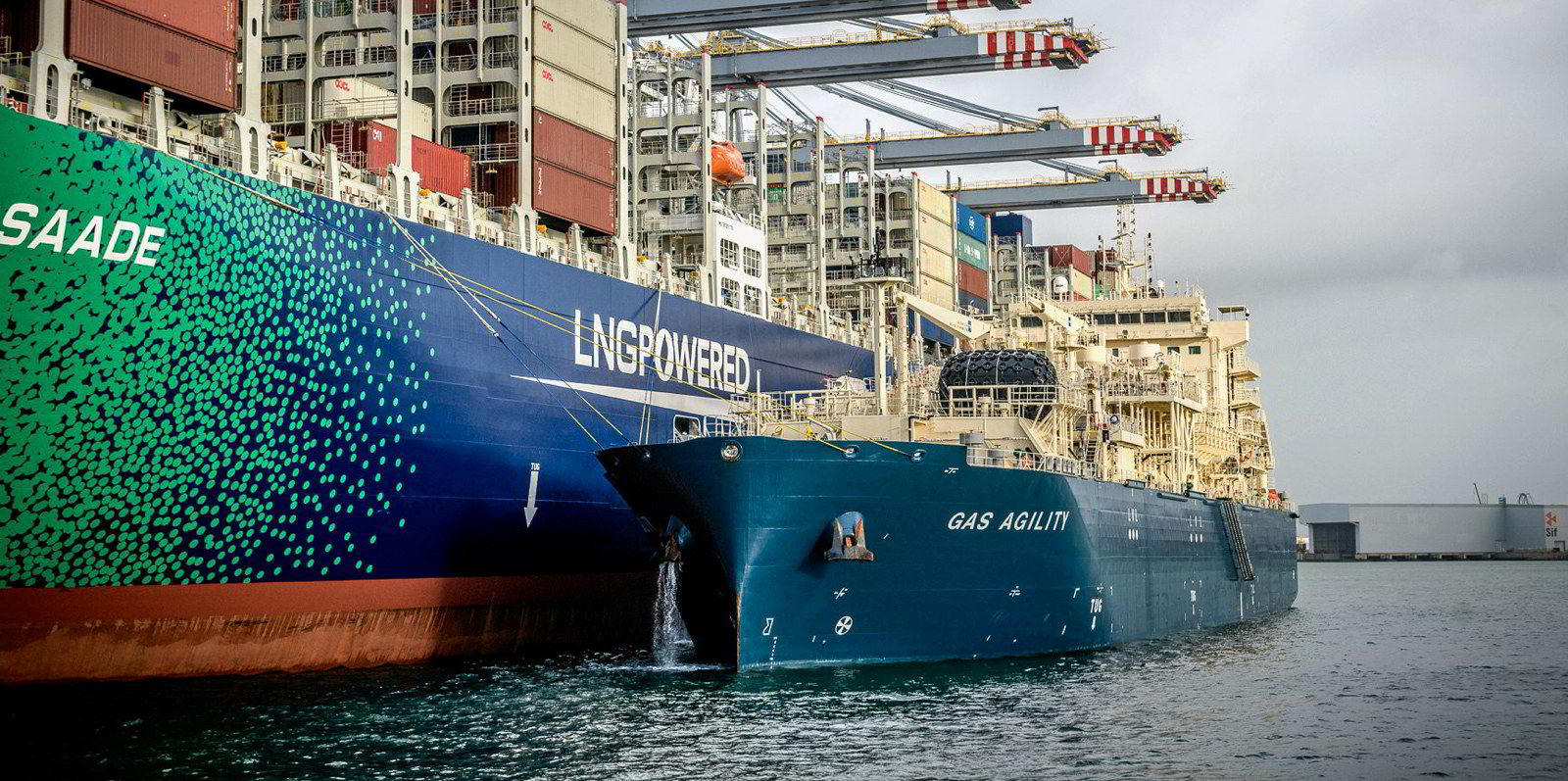Energy major Shell believes hydrogen will be the dominant future fuel for shipping over ammonia, with LNG playing a key role in the route to decarbonising the industry.
Shell International Trading and Shipping Co senior vice president for shipping and maritime Grahaeme Henderson described shipping’s place in the Paris Agreement’s global ambitions as “complex”.
That's because it is an international industry not easily included in national regulations, he said at the Singapore Maritime Technology Conference on Thursday.
But he said: “The reality is that shipping needs to find a pathway to decarbonisation and take action, starting now.”
Future fuels
Henderson outlined three areas in which the industry can work together – fuels, technology and policy.
On fuels he said Shell has concluded that hydrogen is likely to be dominant fuel with LNG playing a vital role in the interim.
“This will ensure we reduce cumulative emissions now, while hydrogen is developed commercially and at scale,” he said.
Henderson said the safety risks with ammonia and hydrogen are “more challenging” when compared to conventional hydrocarbon fuels. But he added that those associated with hydrogen appear “more manageable”.
In contrast, he said the risks associated with ammonia are high due to “its lethal toxicity” and just a small leakage could lead to “significant issues”.
Henderson said the production costs of blue and green hydrogen will continue to reduce. But he said the production process for ammonia is more mature leaving less room for cost improvement.
“When we consider the total emissions, hydrogen will enable greater emissions reductions than ammonia,” the Shell shipping chief said.
Henderson highlighted that Shell is working with partners to build a green hydrogen hub in the Port of Rotterdam and its role in the first deepsea pilot hydrogen carrier that is currently undertaking trials in Japan.
Role of LNG
He was quick to talk up the role of LNG, mentioning the two recent contrasting reports on the fuel issued by SEA-LNG and the Society for Gas as a Marine Fuel and the World Bank.
"LNG is the lowest emission fuel available at scale in the shipping sector today," he said. "It has no near rival in this regard."
He stressed the growth of the global LNG bunkering network and the pathway for the fuel to decarbonise through bio-LNG.
“To minimise cumulative emissions from the shipping sector before future fuels are available in enough quantity for the global shipping fleet, LNG is the choice today,” he said. “The sector cannot afford to simply wait for alternative fuels.”
Carbon price
Moving on to technology, Henderson mentioned fuel cells as “key to unlocking net-zero emission fuels” and said LNG can also play a “crucial role” here.
"Our modelling shows that the fastest pathway to net-zero, with the lowest total emissions, is the accelerated adoption of LNG, combined with widespread use of energy efficient technologies, while developing fuel cells ready to transition directly to zero emissions fuels in the future."
Turning to policy, Henderson said Shell sees an important role for regulation that encourage solutions such as LNG, biofuels and carbon offsets, which will enable emissions reductions today, before zero-emissions fuels are available at scale.
“We will also be advocating for a global market price on carbon emissions in the shipping sector,” he said, with the proceeds used to fund research and development and pilot schemes to decarbonise the sector.








